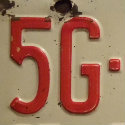
Executives from Sprint, AT&T and FirstNet did not attend the recent 3GPP meeting in Shenzhen, China. None of the companies would offer any reasons for their absence, but some in the industry said their decision to skip the meeting could stem from the deteriorating relationship between the US and China.
"When making decisions about an upcoming 3GPP meeting, the only questions should be: which airline, what flight itinerary, and should I come early or stay late in order to do some sightseeing?" wrote Mike Thelander, an analyst with Signals Research Group who attended the recent 3GPP meeting in China. "Unfortunately, the question seemed to have been, 'given the political climate, what are the optics associated with my company attending a Huawei-hosted 3GPP meeting in Shenzhen, China?' We doubt fear of flying or spring break plans on a beach in Florida or a golf course in Arizona factored into the decision not to attend."
Another attendee at the meeting, who asked not to be named, agreed that meetings in China may be increasingly difficult for some US companies to attend, given the increasingly hostile attitude of the Trump administration toward China on 5G, trade, Huawei and other topics.
That Sprint, AT&T and FirstNet did not attend the 3GPP's meeting is noteworthy, considering all three companies have sent representatives to every major, plenary meeting of the association's Radio Access Network (RAN) Technical Specification Group (TSG) for more than two years. The 3GPP's TSG for RAN has held eight numbered meetings since the beginning of 2017 in locations including Sorrento, Italy; La Jolla, California; and Dubrovnik, Croatia. Sprint, AT&T and FirstNet -- as well as Verizon and T-Mobile -- have sent at least one representative to each of those meetings, according to detailed records kept by the 3GPP. Representatives from T-Mobile and Verizon did attend the TSG RAN's most recent meeting in Shenzhen, China, dubbed RAN#83.
"Participating in the standards process is important to ensure progress is made, given Verizon's commitment to being the world's 5G leader, as we continue to innovate on 5G," a Verizon spokesperson wrote in response to questions from Light Reading. A T-Mobile representative did not respond to questions on the topic.
"Sprint did not attend. We don't have additional details to share," wrote a Sprint spokesperson in response to questions from Light Reading.
Representatives from AT&T and FirstNet did not directly respond to questions on the topic.
And, according to Thelander, their absence was noted. "When a mobile operator doesn't attend a standardization meeting then it isn't present to further its agenda, which could be of strategic importance to the operator's network evolution. We know from firsthand experience that 3GPP's decisions to approve something depend almost entirely on who wants it and how badly they want it," he wrote in a report of the meeting. "Although RAN#83 didn't make any earth-moving decisions, we can think of at least a few topics which were of strategic importance to the missing operators."
You're invited to attend Light Reading's Big 5G Event! Formerly the Big Communications Event and 5G North America, Big 5G is where telecom's brightest minds deliver the critical insight needed to piece together the 5G puzzle. We'll see you May 6-8 in Denver -- communications service providers get in free!
At the recent RAN#83 meeting in China, the 3GPP TSG RAN released its third and final bundle of initial 5G specifications. But, according to those in the industry, there aren't many operators interested in it.
A number of executives either familiar with the standards process or who attended the meeting attributed the absence of Sprint, AT&T and FirstNet representatives to a variety of other, relatively benign factors. For example, Qualcomm's tech specs chief Lorenzo Casaccia said it can sometimes be difficult for US companies to obtain the visas necessary to visit countries like China. Casaccia lives in Spain, where he said visas are relatively easy to obtain.
Other executives argued that mobile network operators don't necessarily attend all 3GPP standards meetings.
A 3GPP spokesperson declined to comment.
The absence of FirstNet -- the US government entity charged with building a nationwide wireless network for public-safety users including police, firefighters and others -- is particularly remarkable because FirstNet has a senior director of standards and the agency recently boasted that he has been attending 3GPP meetings.
Moreover, 5G standards -- and China's role in those standards -- has recently come under scrutiny among officials in the US Congress and the Trump administration. For example, a bipartisan pair of Senators -- Democrat Mark Warner and Republican Marco Rubio -- a recently urged the US Director of National Intelligence Dan Coats to "issue a comprehensive and unclassified report on China's participation in the international standard-setting bodies (ISSBs) for fifth-generation wireless telecommunications technologies (5G). This report would allow companies in the U.S. to fully assess any existing threats to fair competition and push back against them."
And Trump's main economic advisor -- Larry Kudlow, the director of the National Economic Council -- recently sounded an alarm on the topic of standards setting: "I don't want certain countries to run away with certain standards," he said at a recent event focused on 5G. Kudlow did not name China specifically, nor did he provide details on the topic.
Of course, if souring US-China relations do in fact manage to affect the standards-setting process in the wireless sector, that could have serious effects on a global industry that only recently unified around one common transmission technology: LTE.
Meaning, if US-China tensions create a schism in the 3GPP, China and its allies could create one set of standards for 5G and the US and its allies could create another set of standards for 5G. It would be GSM vs CDMA for a modern era.
— Mike Dano, Editorial Director, 5G & Mobile Strategies, Light Reading | @mikeddano
About the Author(s)
You May Also Like











